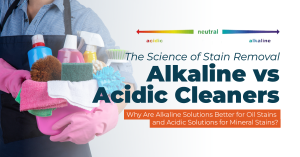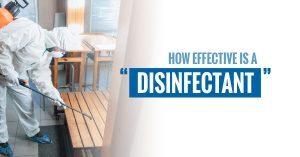
Bacterial and Viral STIs: No Risk

Bacterial STDs, such as chlamydia, gonorrhoea, and syphilis, are caused by bacteria in the mucous membranes surrounding the genitalia, anus, and mouth. However, they cannot survive for an extended period outside these mucous membranes.
Viral STDs, on the other hand, can spread beyond the mucous membranes to other skin cells. While they do not spread as widely as bacterial STDs, they can survive on porous skin near the mucous membranes. Examples of viral STDs include hepatitis B, herpes simplex, human immunodeficiency virus (HIV), and human papillomavirus (HPV). Therefore, it is improbable to become infected with a bacterial or viral STI by simply coming into contact with a toilet seat.
Parasitic STI: Slight Risk
Parasitic STDs such as trichomoniasis and pubic lice, or crabs, are caused by parasites that can thrive on various surfaces, including toilet seats, towels, clothing, bedsheets, and blankets. However, contracting a parasitic STD from these surfaces is rare, as direct contact with a toilet seat while a parasite is present, is necessary. Although parasites cannot survive for long periods on hard surfaces like toilet seats, they can live longer than viruses and bacteria.

Overall Risk Analysis

The likelihood of catching a viral or bacterial disease from a toilet seat is low. For transmission to occur, there must be direct contact between your genitals and the surface of the toilet seat. Additionally, you would need to sit in the exact same place where the initial transmission occurred.
For viruses like HIV to be transmitted to your bloodstream, you would need an open wound that comes into direct contact with the infected surface soon after another person’s genitals has touched it. Genital herpes can be transmitted even if the infected person does not have visible sores, but direct contact with the infected surface is still required for transmission to occur. Overall, the chances of contracting a disease in a restroom or from a toilet seat are very slim
Norovirus (Non-STI): Moderate Risk
Other than sexually transmitted infections (STIs), various germs can make you sick and cause concern for those using public restrooms. While most viruses and bacteria do not survive for long on hard, cold surfaces commonly found in toilets, the common cold virus is more likely to spread through physical contact with other individuals or exposure to coughing and sneezing.

One common illness-causing virus is norovirus, also known as the “stomach bug,” which can be contracted in restrooms due to its presence in faecal matter. The norovirus is particularly concerning as it can live longer on hard surfaces such as toilet seats compared to other viruses. Additionally, norovirus can be transferred to door and faucet handles after wiping, increasing the risk of transmission to others. So it is essential to practice good hygiene to avoid spreading this infection.
Preventing the Spread of Restroom Diseases
For Individuals

- Hygienic practices: It is recommended to take measures to avoid the transmission of diseases in restrooms. To prevent direct contact with the toilet seat, we suggest wiping it with an antibacterial and antiviral wipe, using toilet paper or a seat cover, and sitting down cautiously to avoid genital contact with the seat.
- Proper handwashing: It is crucial to wash your hands thoroughly after using the restroom and ensure they are completely dry before leaving. We recommend using a paper towel to dry your hands or keeping tissues handy if paper towels are not available.
3. Avoid air dryers: Although air dryers may seem like a convenient option, the blowing force can actually spread germs to different areas. Therefore, it is advisable to use paper towels to ensure effective hand hygiene and prevent the spread of germs.
4. Touch-free use: Whenever feasible, we suggest avoiding turning off the water tap with your hands after washing them. Instead, you can use a paper towel or your elbows to turn off the faucet. We also recommend using your elbow or foot to open the restroom door to avoid touching potentially contaminated surfaces. These simple measures can help reduce the risk of germ transmission and ensure better hygiene practices.
For Industry Professionals
- Regular cleaning: Establish a regular cleaning schedule and ensure that all surfaces, including toilets, sinks, and door handles, are cleaned thoroughly with effective disinfectants. In addition, it is important to thoroughly sanitise not only the toilet bowls but also the washroom floors using powerful disinfectants, as bacteria and viruses can spread to the floor through urine and faecal matter.
- Encourage proper hygiene: Place signs and reminders in the restroom to encourage appropriate hygienic practices, such as washing hands with soap and water for at least 20 seconds and avoiding touching the face. Consider providing hand sanitisers and tissues for visitors to use.

3. Upgrade restroom facilities: Install touchless fixtures, such as automatic flush toilets, sensor-operated soap dispensers, touchless faucets, and disinfectant sprays minimise surface contact and reduce the spread of germs.
4.Improve ventilation: Ensure proper ventilation in the restroom to reduce the concentration of germs in the air. Consider installing exhaust fans or opening windows to improve airflow.
ORAPI RECOMMENDS:
ORAPI RECOMMENDS:
CONCLUSION: Can You Get STDs From Toilet Seats?
In conclusion, while public restrooms can harbour various germs, including viruses, bacteria, and parasites, the likelihood of contracting a sexually transmitted infection (STI) from a toilet seat is low. However, other germs that can cause illnesses, like norovirus, are present in restrooms, and it is essential to practice good hygiene to avoid the spread of these infections. Personal hygienic practices, such as wiping the toilet seat, handwashing, and touch-free use, can help reduce the risk of germ transmission. Regular cleaning of restrooms, including all surfaces and floors, and encouraging proper hygiene can also help maintain good restroom hygiene.














